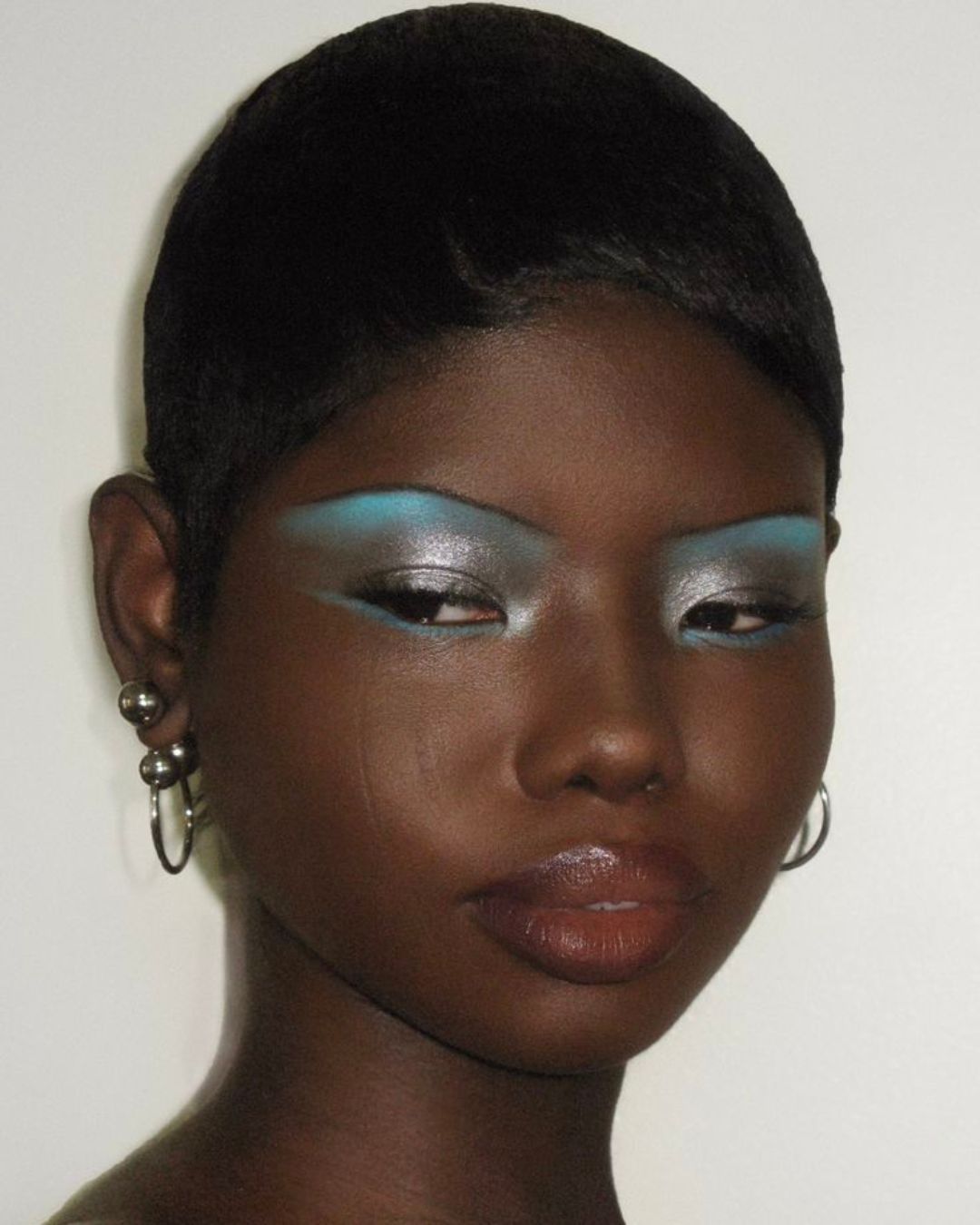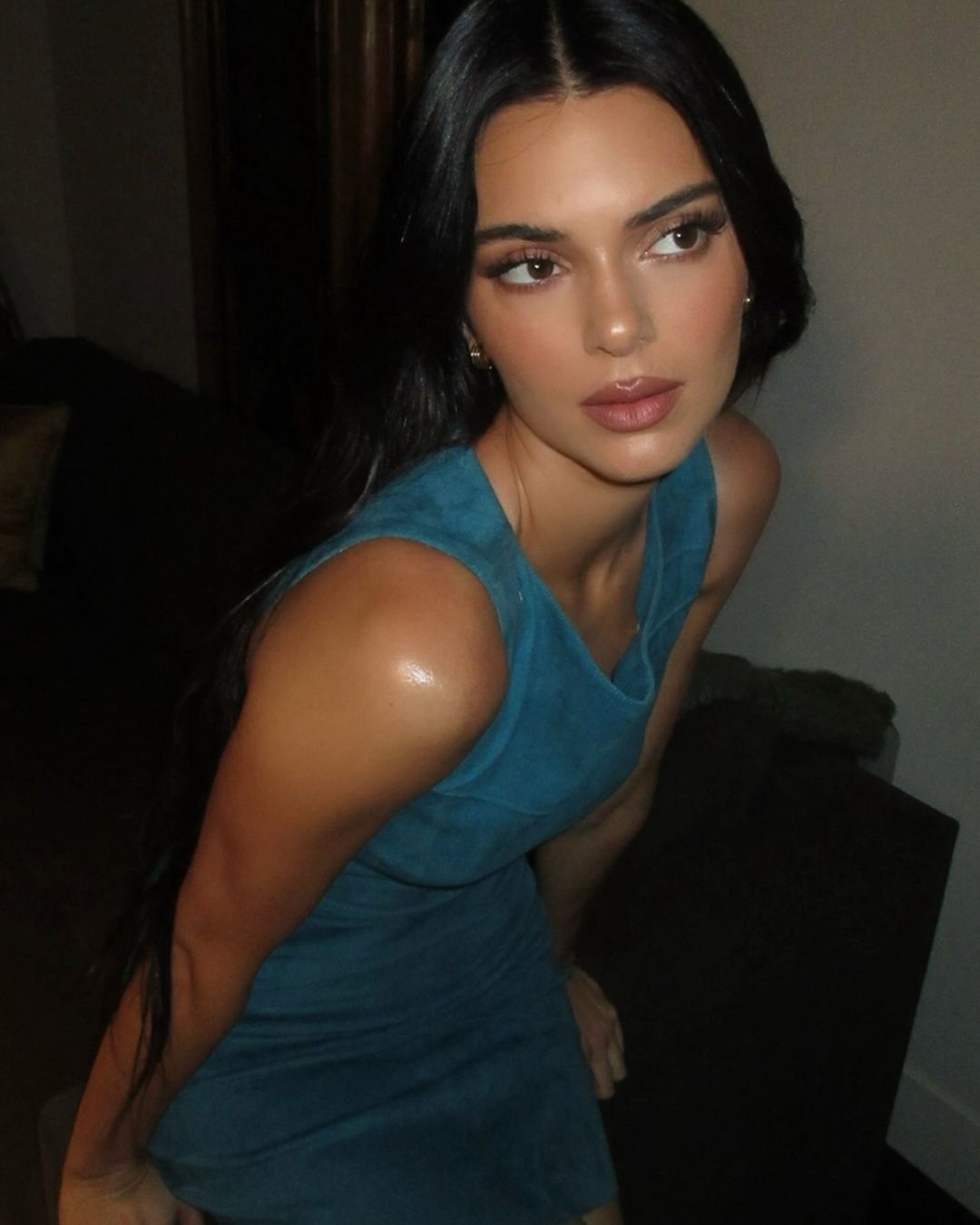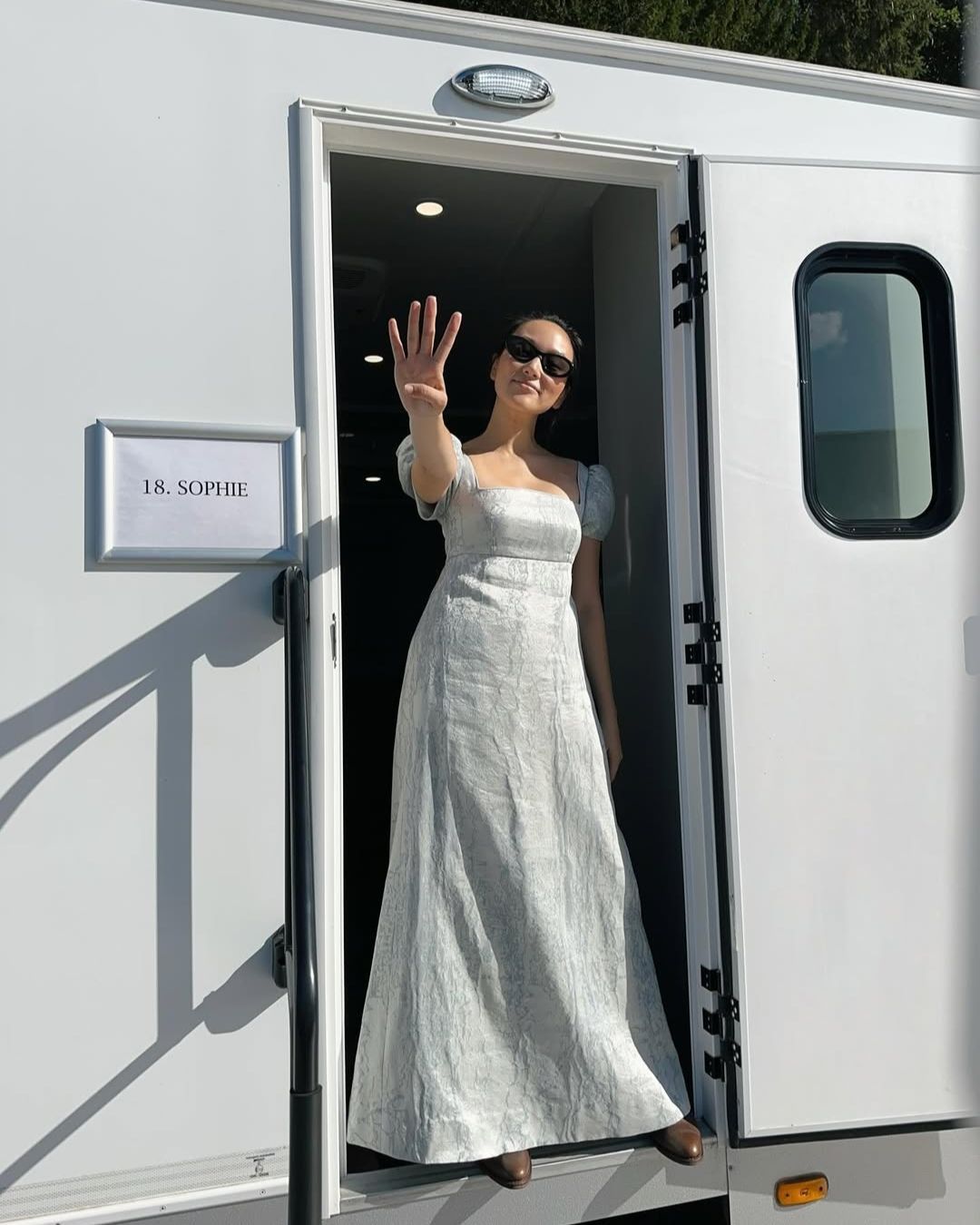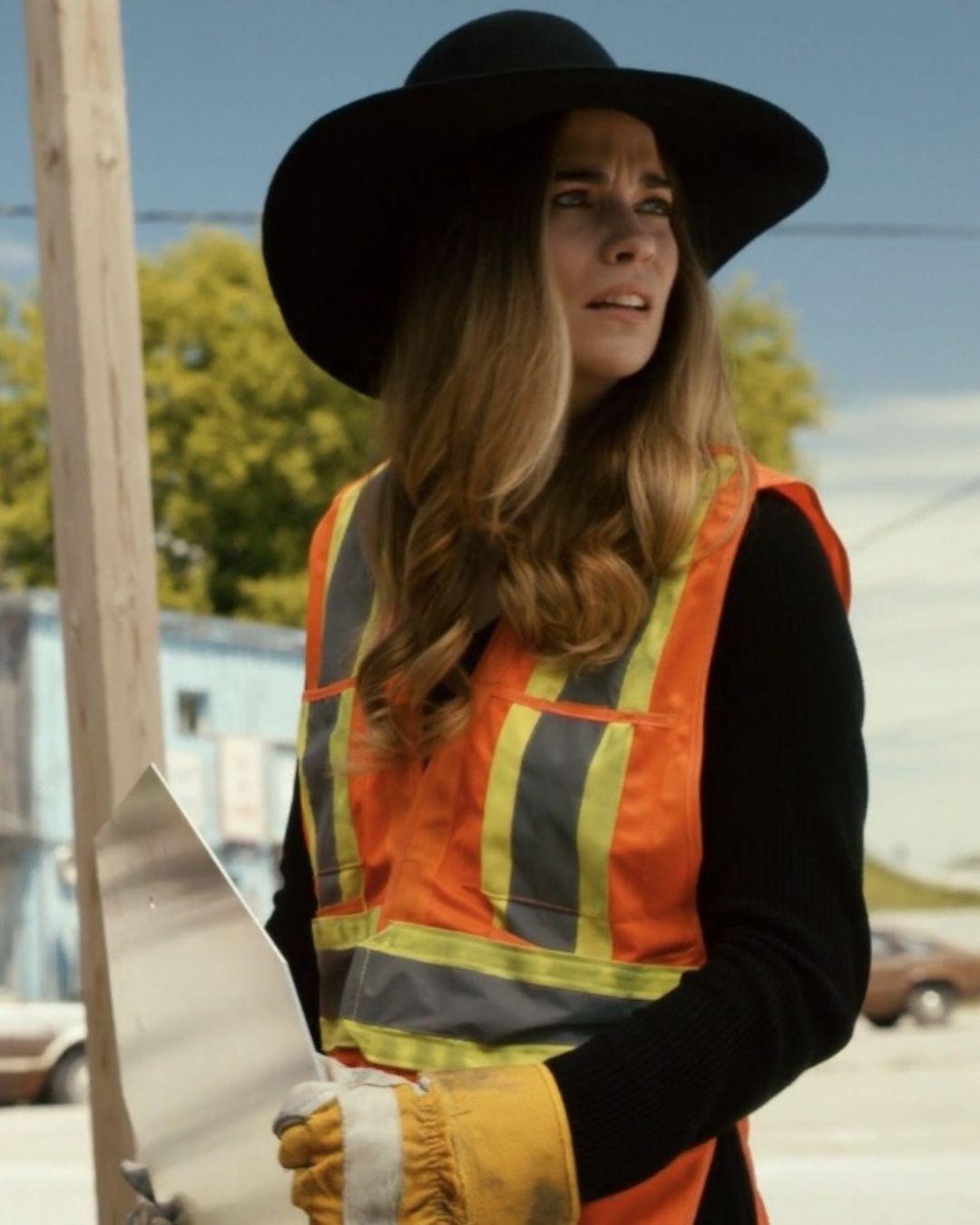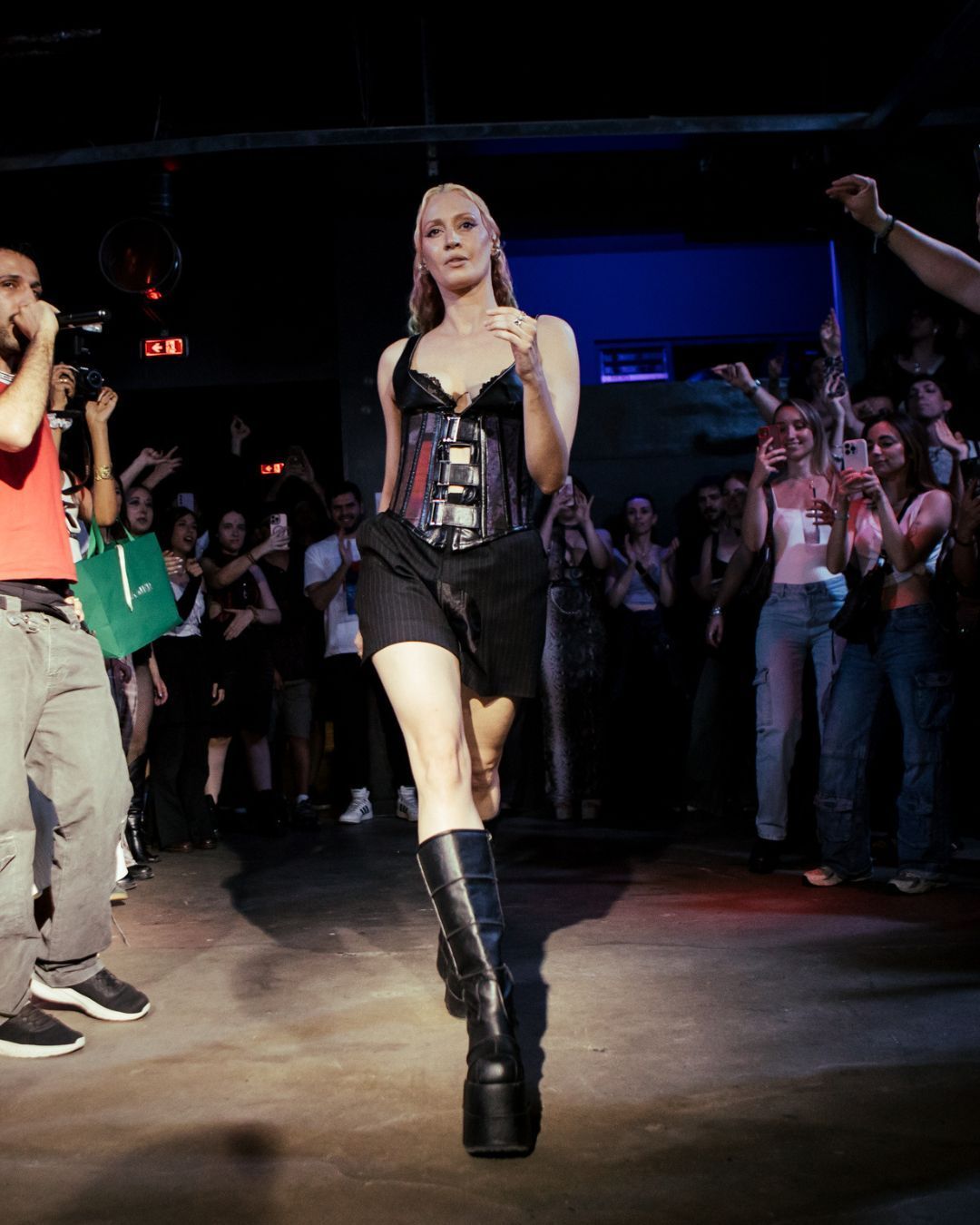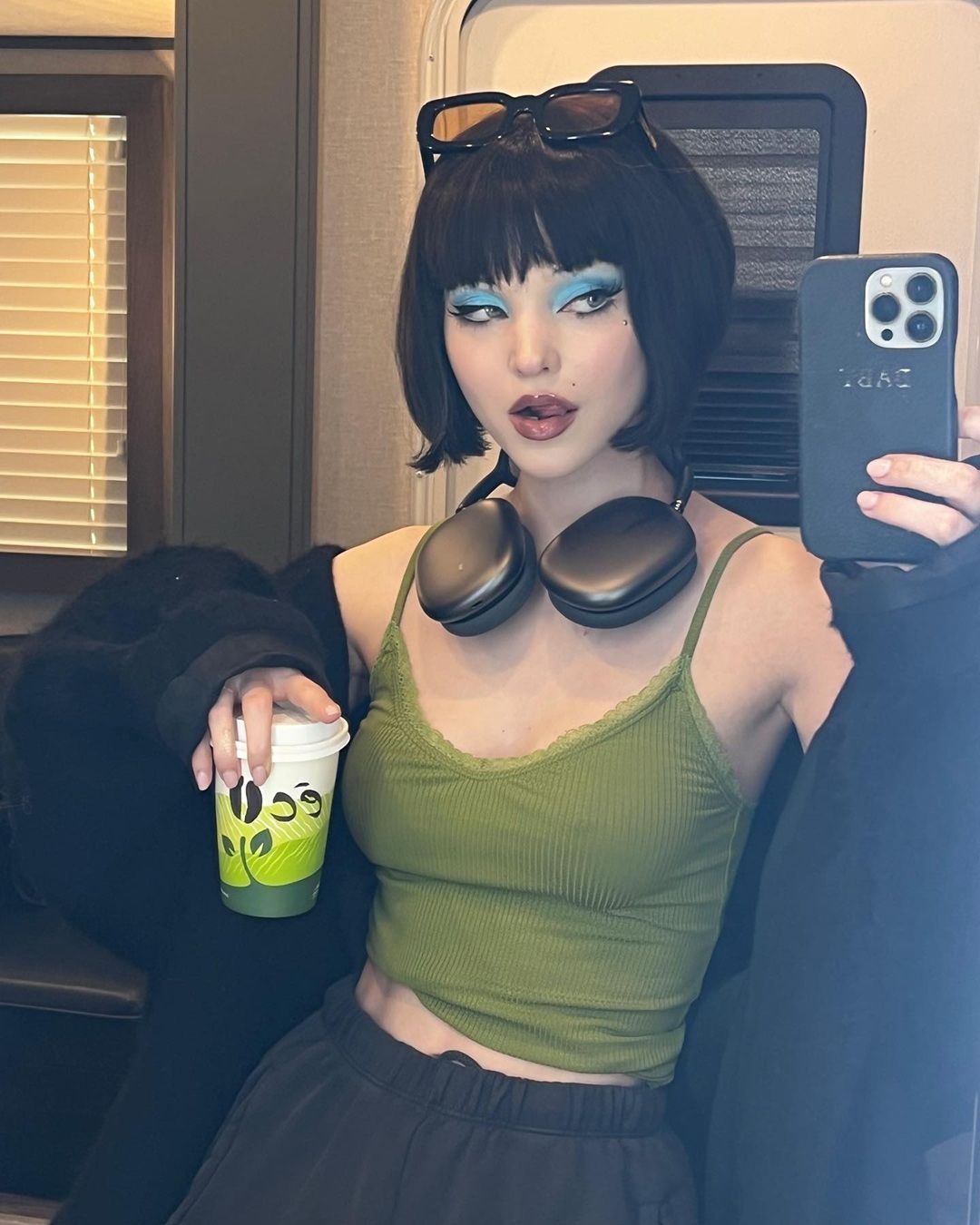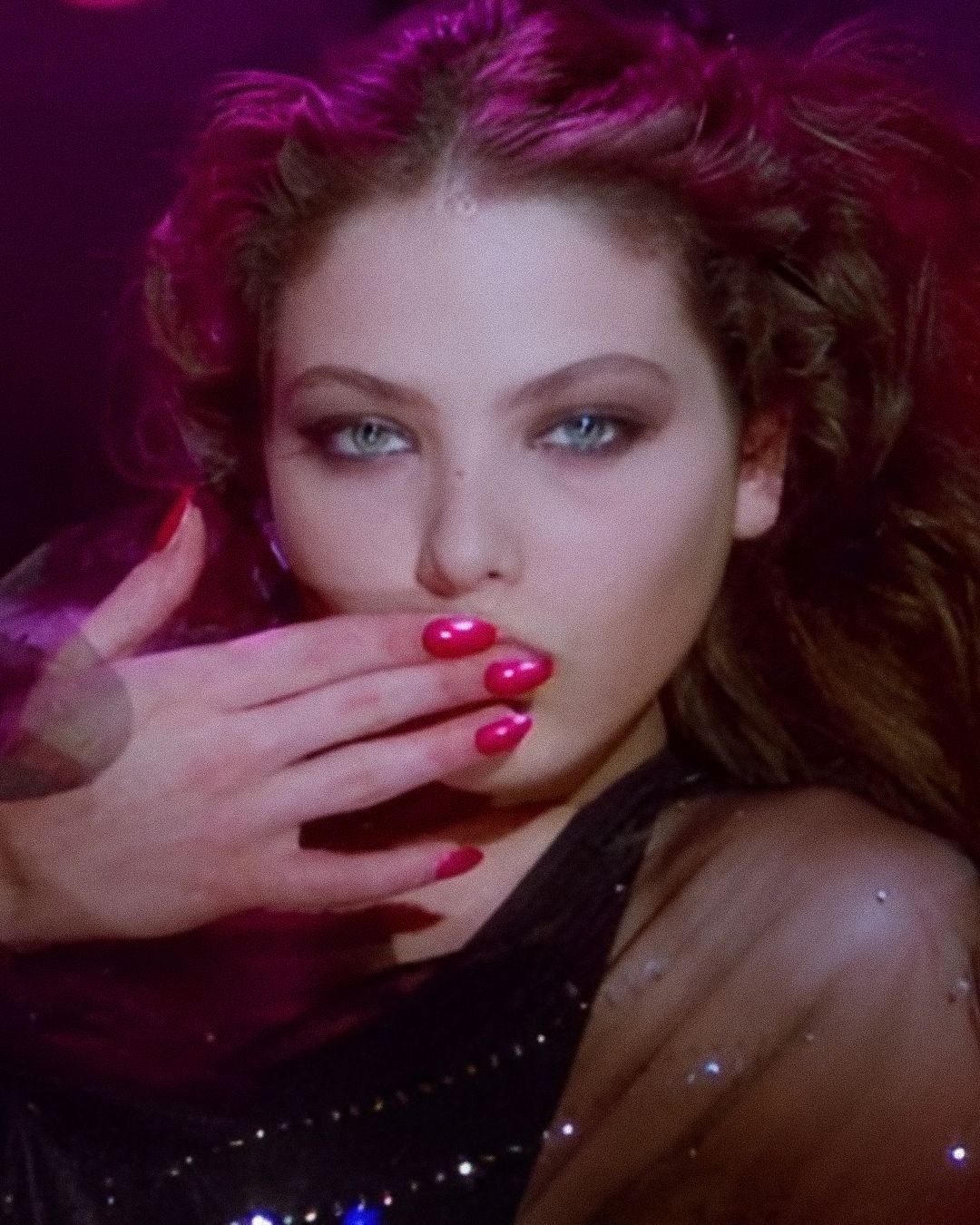
Kaze looks towards the future (with a bit of superstition) Interview with the musician and actress, from Call my agent to all the work that still needs to be done

Kaze is a practical, dynamic girl, straight to the point. When we meet her, she tells us about her past as a nurse and the difficulties she has faced in her career and - more generally - in her life as a black woman trying to break into the music world in Italy. We come out enriched, full of ideas to try to build, starting from ourselves, a better world. Her first album, Post Buio, was released on April 12th, and we can't stop listening to it. Especially after getting to know her.
Slipped shirt on one shoulder, yellow sun pants, and bright magenta sandals. Kaze settles on our little sofa and is a torrent of inspirations and anecdotes, some beautiful and some ugly, but all purposeful: "My music is autobiographical: it started as a secret diary where I put my things. Now I try to give it a somewhat more universal meaning, to think about what I can give to those who listen. Without being too influenced and without being overtaken by fear and anxiety of having to please someone." Her autobiography, naturally, starts from being a woman and being a black woman in a beautiful but complex country, Italy. "Breaking into the music scene as a woman is more difficult. In the music business, there are very few women. There is this idea that women don't write their own songs. I personally care a lot about my writing, I'm a little afraid to write with someone else because I don't want to be told that I don't write my own songs, and maybe this thing makes me lose opportunities. And then there's a lot of competition, maybe because there's less space dedicated, there's the feeling that only one woman can be seen at a time. And instead, it's not true, there's space for everyone in music." Her speech also touches on female solidarity: "We struggle to make a group. I would like to break down these difficulties, to join the others to create a healthier environment."
As for her Burundian origins, Kaze reveals something to us: "Burundi and Italy have two similar cultures, in terms of values. There's attachment to family, to friendship, there's a predisposition towards others." Not everything has been ideal: "I felt different, I tried to be similar to my classmates. I had to work a lot to fully accept myself, with the beauty that the two cultures had given me. It's not easy, but then growing up I realized that by offering my experience, maybe I could make a bit of space in someone's mind who had no idea what it meant, to open a dialogue." Discrimination has been there: "The ones I suffered were always very subtle. I was told 'you are beautiful for a black person, because you are lighter' and I didn't understand if it was a compliment or if it was an insult to a beauty standard different from mine. At work, I always felt some kind of prejudice that made me competitive, that pushed me to study to prove that I deserved that place. It was unpleasant, I felt I always had to be perfect, to defend an entire category. It's a heavy burden, even psychologically. I talk about this, but it's hard to make people understand that this too is discrimination."
In her life not only music, indeed. First another life, the one dedicated to studies in Rome and then to nursing work: "I worked two and a half years in the emergency room. I moved to Milan to become a nurse. I started working right during Covid. I had to do a lot of therapy to overcome things. On the other hand, it's a job that teaches a lot of empathy, and I like to remember the beautiful part. I wouldn't go back, but it was a useful experience." Even though her dream has always been something else: "I always wanted to be a singer, it was my dream but I had no idea how to do it. I was very scared. I made small attempts, I acted, I did theater. By chance, after an audition for X-Factor, someone passed my contact to a casting that was looking for someone for a movie. I auditioned and they hired me. I remember it as a moment of total madness. I got up and went to quit my job. I was small and naive, naivety allowed me to do this. I was convinced that making a movie would automatically make you famous. Then I learned that it doesn't work like that."
A total and impulsive change, with difficulties. This is also linked to the advice she would give to a girl who has the same dream: "In hindsight, I would tell this hypothetical girl to prepare very well. I always felt unprepared. My family couldn't afford to let me study music when I was little. So the advice is: if you have the opportunity in life, go for it, go and somehow it will happen. If you have the opportunity to prepare yourself and take a little more time, however, do it. Don't seek opportunities without being ready." Among these opportunities also Call My Agent, TV series broadcast on Sky Serie and a remake of the French series Dix pour cent. Kaze took part in both seasons. "I liked the second season more than the first, we already knew each other so everything was much simpler. There was an atmosphere on the set of fun and dedication. The most fun thing? The days with Gabriele Muccino. He gave a hundred percent, he arrived in the morning and made this scream to charge us all." About the future, no talk, for superstition: "I'm superstitious, I keep everything to myself. But I hope to do more and more what I like. I'm enjoying the moment, I'm focused on the album, but I'm also experimenting. I would like to see myself in another role. I'm taking dance lessons, I would like to integrate my body in my art too. A friend of mine follows me, we use African and Senegalese music, the one I listened to as a child. I always hated not being able to dance."




















